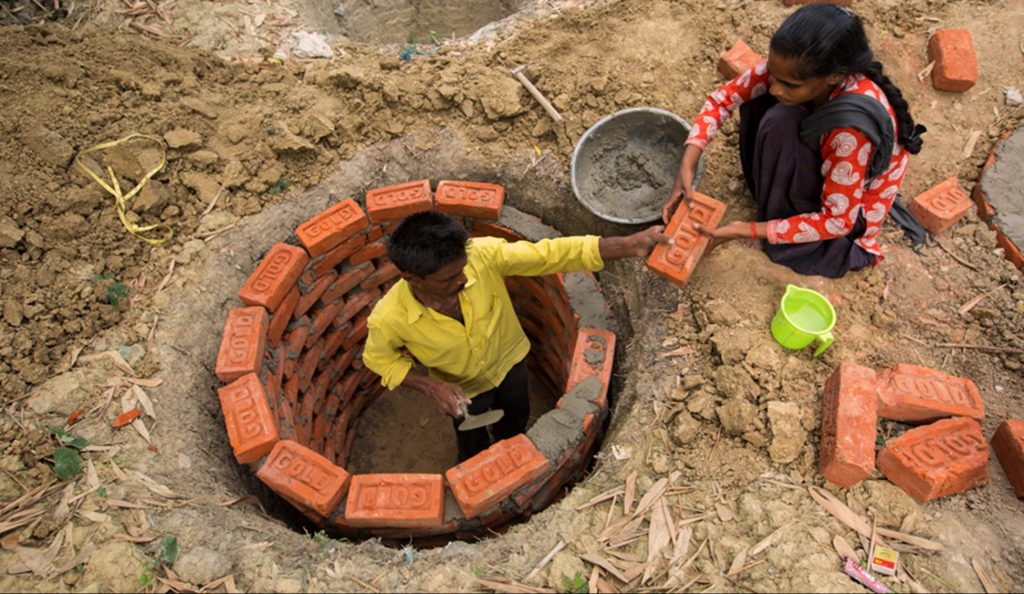

Shiv Devi, a 45-year-old Anganwadi worker from Suthena village in Hardoi, a district of central Uttar Pradesh, lost her husband due to a diarrheal illness. In 2018, her village did not have toilets, and defaecating in the open was the norm. She volunteered to become part of the Village Water and Sanitation Committee (VWSC) and understood the health problems linked to poor sanitation and contaminated water. With her new learnings, she decided to make other people in her village aware of the complications arising due to the absence of proper sanitation. As a result of her tireless efforts, her neighbourhood has now stopped defecating in the open. People in her village have realised that the water they were drinking earlier from shallow hand pumps is tainted with nitrate and fluoride, which is detrimental to their health. The villagers have now opted for piped drinking water supply which has improved their health drastically.
India alone accounted for 90 per cent of the people in South Asia and half of the 1.2 billion people in the world that defecate in the open. The open defecation practice also leads to faeces being introduced daily into the environment, which regularly exposes children to excrement through direct contact. This compounds the risk of spreading diarrhoeal and waterborne diseases given the lack of regular handwashing and microbial contamination of water, contributing to nearly 100,000 diarrhoeal deaths of children under five years in the country.
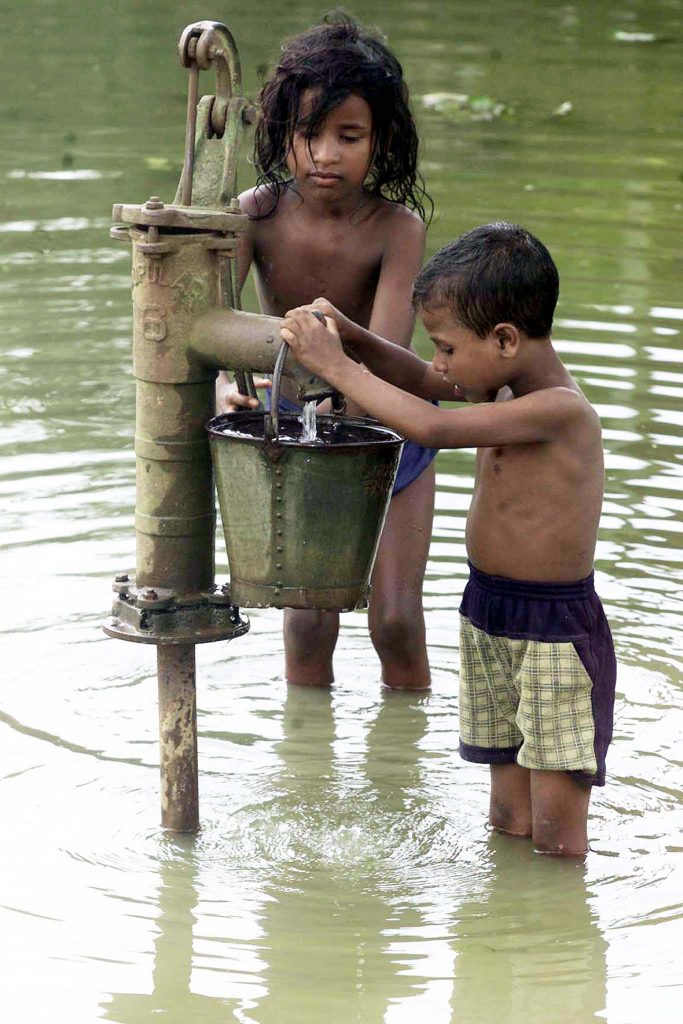 Unlike Suthena village, nearly 50%[1] of India’s population still does not have access to safe drinking water. Almost 38 million Indians suffer from waterborne diseases annually, and diarrhoea alone kills over 700,000 Indians every year, of which 150,000 are children. In 2015, approximately half of India’s population suffered the indignity of defaecating in fields, forests, bodies of water, or other public spaces due to a lack of access to toilets. India alone accounted for 90 per cent of the people in South Asia and half of the 1.2 billion people in the world that defecate in the open. The open defecation practice also leads to faeces being introduced daily into the environment, which regularly exposes children to excrement through direct contact. This compounds the risk of spreading diarrhoeal and waterborne diseases given the lack of regular handwashing and microbial contamination of water, contributing to nearly 100,000 diarrhoeal deaths of children under five years in the country.
Unlike Suthena village, nearly 50%[1] of India’s population still does not have access to safe drinking water. Almost 38 million Indians suffer from waterborne diseases annually, and diarrhoea alone kills over 700,000 Indians every year, of which 150,000 are children. In 2015, approximately half of India’s population suffered the indignity of defaecating in fields, forests, bodies of water, or other public spaces due to a lack of access to toilets. India alone accounted for 90 per cent of the people in South Asia and half of the 1.2 billion people in the world that defecate in the open. The open defecation practice also leads to faeces being introduced daily into the environment, which regularly exposes children to excrement through direct contact. This compounds the risk of spreading diarrhoeal and waterborne diseases given the lack of regular handwashing and microbial contamination of water, contributing to nearly 100,000 diarrhoeal deaths of children under five years in the country.
The Government of India earmarks funds to improve water and sanitation facilities through policy interventions like Swachh Bharat Mission, Jal Jeevan Mission, Atal Bhujal Yojana, Swachh Bharat Mission, Menstrual Hygiene Management, and Swachh Vidyalaya Abhigyan. These policies have helped improve sanitation, provide clean drinking water and improve menstrual hygiene. The Swachh Bharat Abhiyan, launched by the Government of India in 2014 to make India Open Defecation Free (ODF) in a time-bound manner by 2019 – the 150th birth anniversary of Mahatama Gandhi, has also galvanised several organisations to implement WASH projects across the country. As a result, the pace of toilet construction and its usage has steadily increased since 2014.
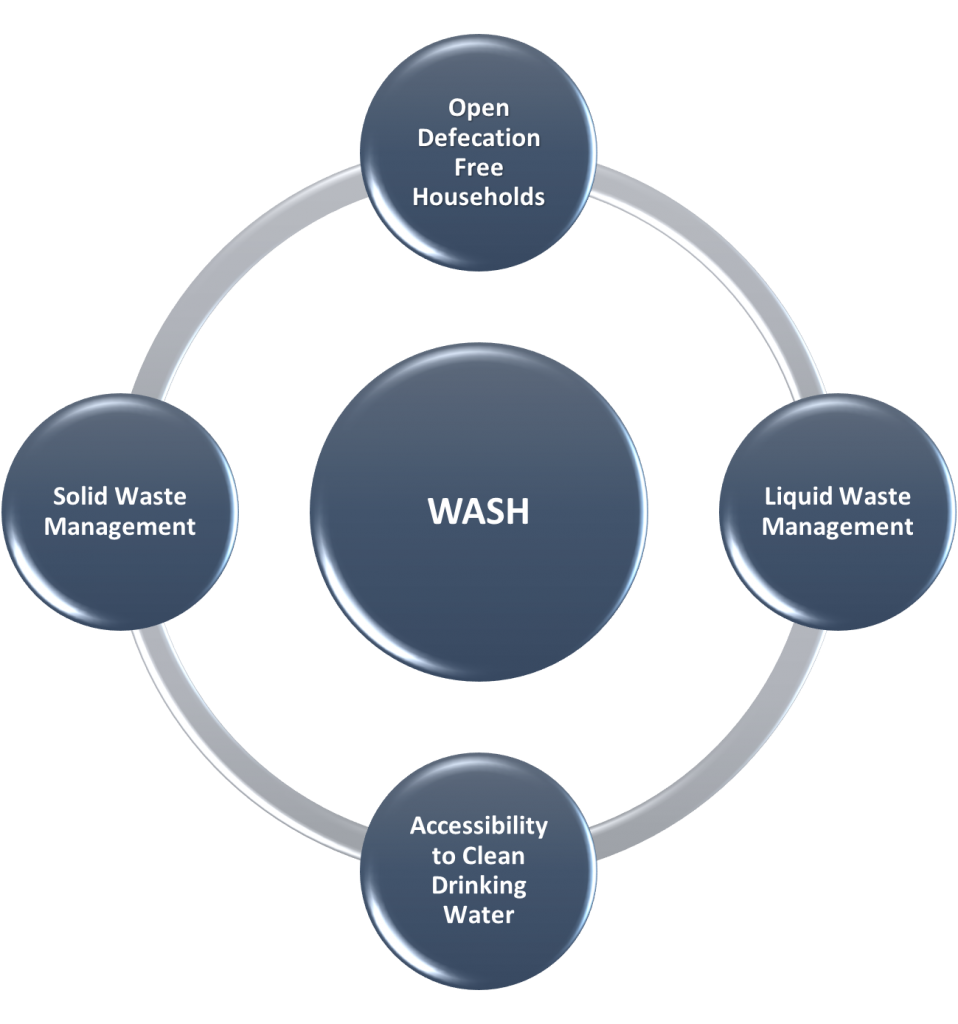 To support the Government in its efforts of providing clean drinking water and implementing sanitation measures, we have, through our flagship programme – HCL Samuday (aimed at developing source code of a sustainable, scalable, and replicable model of holistic rural development), made our foray in 164 Gram Panchayats of three blocks in Hardoi by conducting a multi-faceted baseline survey. The Gram Panchayats fared very poorly in water, sanitation, hygiene, and solid and liquid waste management. The survey revealed that many households did not have toilets, leading to all family members defaecating in the open. This practice was affecting women and children the most. Women could only attend to the call of nature early morning or late in the night to avoid being seen by others. To avoid going out at other times, they had to either suppress till a suitable time is available or simply, eat and drink less.
To support the Government in its efforts of providing clean drinking water and implementing sanitation measures, we have, through our flagship programme – HCL Samuday (aimed at developing source code of a sustainable, scalable, and replicable model of holistic rural development), made our foray in 164 Gram Panchayats of three blocks in Hardoi by conducting a multi-faceted baseline survey. The Gram Panchayats fared very poorly in water, sanitation, hygiene, and solid and liquid waste management. The survey revealed that many households did not have toilets, leading to all family members defaecating in the open. This practice was affecting women and children the most. Women could only attend to the call of nature early morning or late in the night to avoid being seen by others. To avoid going out at other times, they had to either suppress till a suitable time is available or simply, eat and drink less.
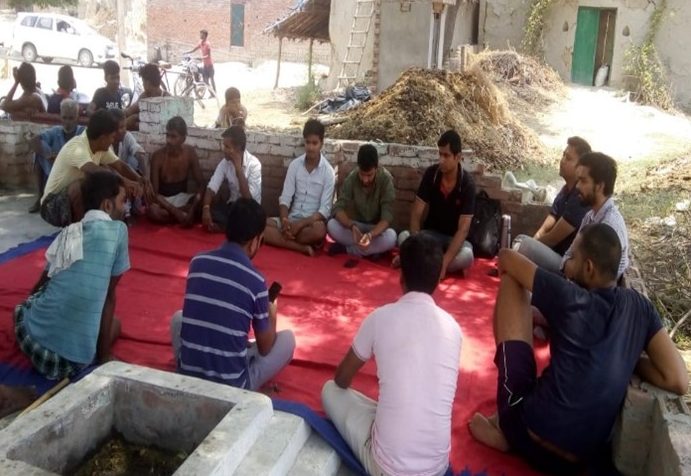
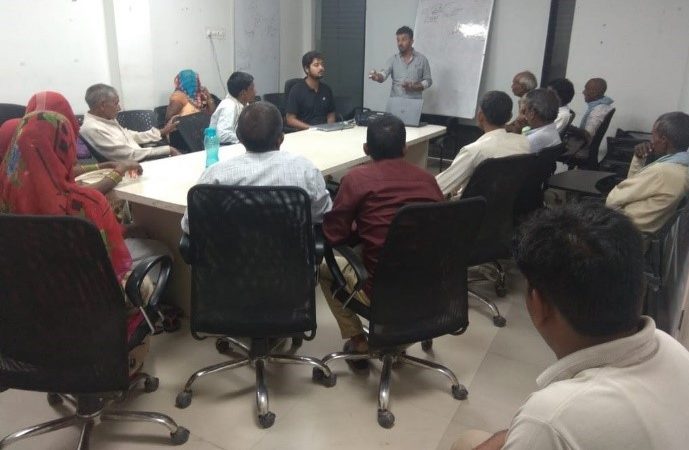
To counter this problem, our team worked with Self Help Groups, Aanganwadi workers, and Gram Pradhans to sensitise the community on the importance of adoption of safe sanitation practices, consumption of safe drinking water, maintenance of minimum standards of hygiene, and making necessary arrangements for proper management and discharge of solid and liquid waste. Following a Community-Led Total Sanitation (CLTS) approach, more than one lakh households have been motivated to adopt safe sanitation practices by using individual household toilet/community toilets so that Gram Panchayats attain the status of open defaecation-free (ODF). Gram Panchayats celebrate this status with utmost zeal and vigour through Gaurav Yaatra or Walk of Pride, where all villagers participate.
Access to safe water is essential for every household for drinking or sanitation purposes. Addressing the fundamental human needs of safe drinking water, sanitation, and hygiene, we have been working over the last six years to ensure that people in Hardoi have access to clean drinking water. The focus is on taking care of both infrastructure and behaviour change-related needs.
Liquid Waste Management
The story of a 40-year-old Ram Rati from Hathora village (Hardoi district) is no different. Just like all other women in her village, she used to make multiple trips to the village pond to discard the wastewater generated in her house during bathing, cooking, cleaning, and other household activities. All of this because her house was not connected to the drains. HCL Samuday team spotted this issue of liquid waste management and helped construct a soak pit at her home. Following her example, all the nearby families also constructed similar soak pits in their respective households. So far, 86 soak pits have been constructed in the village. This has not only led to a cleaner and disease-free environment but is also helping in revitalising groundwater.
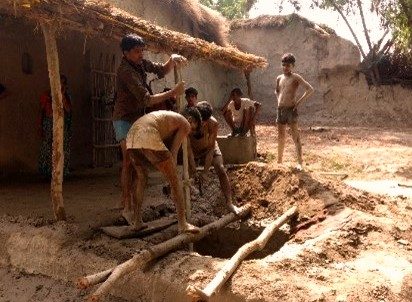
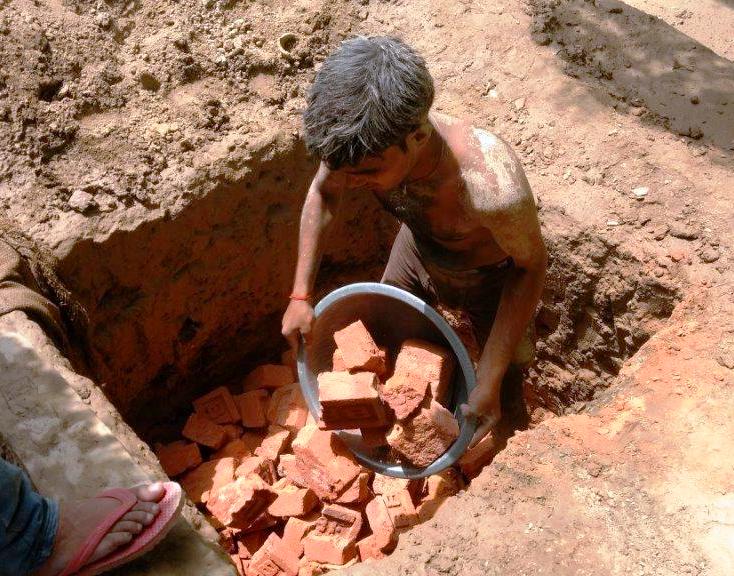
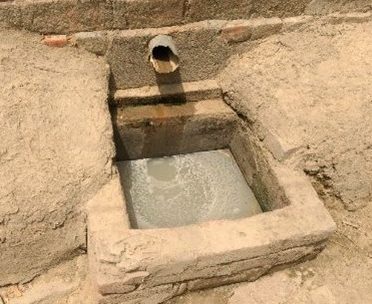
Today, a total of 3.4 lakh litre of wastewater is being treated every day through 240 individuals and 21 community soak pits, and approximately 16 km drainage networks in16 villages.
Safe Drinking Water
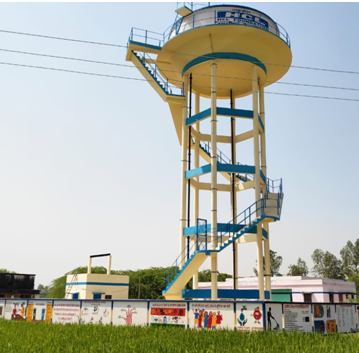 Access to safe water is essential for every household for drinking or sanitation purposes. Addressing the fundamental human needs of safe drinking water, sanitation, and hygiene, we have been working over the last six years to ensure that people in Hardoi have access to clean drinking water. The focus is on taking care of both infrastructure and behaviour change-related needs.
Access to safe water is essential for every household for drinking or sanitation purposes. Addressing the fundamental human needs of safe drinking water, sanitation, and hygiene, we have been working over the last six years to ensure that people in Hardoi have access to clean drinking water. The focus is on taking care of both infrastructure and behaviour change-related needs.
For making clean drinking water available and accessible to all, wherever possible, chlorination of functional hand pumps is carried out. This is complemented by the development of piped drinking water supply system by facilitating the construction of overhead tanks and direct pumping facilities in collaboration with the local community. Management of these sites is also ensured by strengthening community groups called Water User Groups. With nine operational sites and 21 others in various stages of completion, the community is experiencing the benefits of piped drinking water supply. This intervention was designed for an overall outreach of 5,597 households reaching out to 37,690 individuals.
WASH is also a vital factor towards a child’s survival, growth and development, notably to prevent malnutrition and preventable diseases, curtail neonatal mortality and improve education outcomes.
WASH in Schools
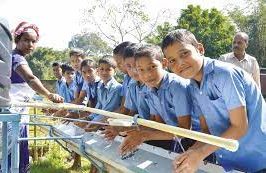 Our CSR outreach – HCL Samuday – is a holistic rural development programme, and improvement in school education is catered with Happy School intervention. Several studies over the years have shown how the unavailability of sanitation facilities or availability of poor or non-functional toilets and drinking water facilities lead to higher dropout cases at school, especially for girls.
Our CSR outreach – HCL Samuday – is a holistic rural development programme, and improvement in school education is catered with Happy School intervention. Several studies over the years have shown how the unavailability of sanitation facilities or availability of poor or non-functional toilets and drinking water facilities lead to higher dropout cases at school, especially for girls.
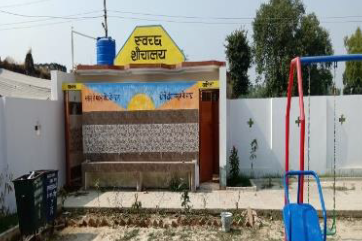
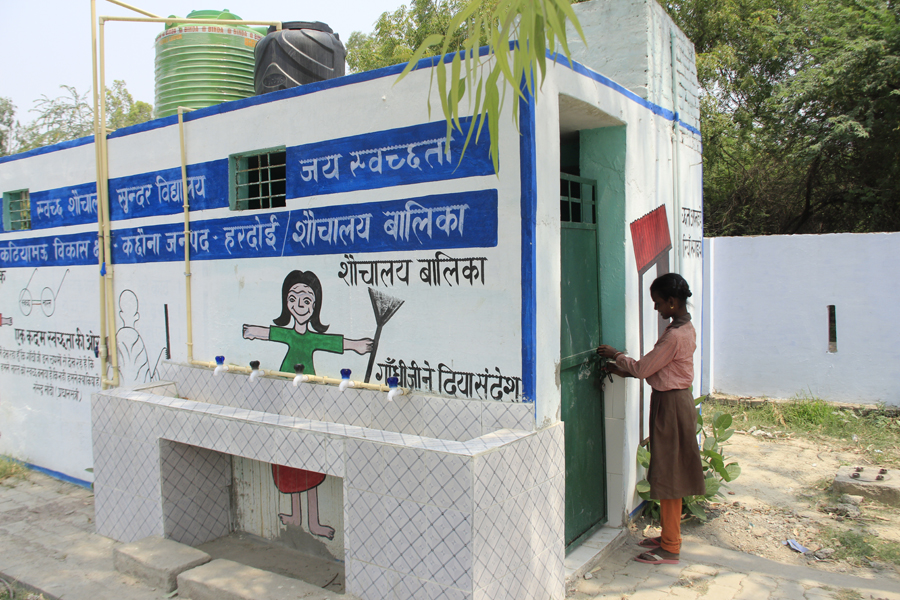
To ensure better classroom participation and retention, basic infra facilities have been improved in 517 schools. It is ongoing in 238 more schools. Along with ensuring facilities like library set up, electricity, sports equipment, it is made sure that all schools have clean, functional toilets, separate for boys and girls, and also hygienic drinking water and handwashing facility.
For initiatives related to WASH to succeed at the country level, there is a need for behavioural and attitudinal change along with, of course, support structures such as suitable infrastructure facilities. There is also a need to focus on softer components such as regular training, an inspection of facilities, supervising and assessment of facilities, strengthening village level institutions (VWSCs) and eventually finding reconciliatory methodologies to the problems faced on the ground.
Scenario During the Pandemic
COVID-19 pandemic populated the message of healthy and hygienic practices across the world. Studies[2] also highlighted the role of clean water, sanitation, and hygienic practices in preventing the spread of the virus. We distributed essential personal hygiene kits to 30,000 families with the help of local volunteers while following COVID-19 guidelines of social distancing and wearing face masks. Each kit comprised two soaps, two face masks, sanitary napkins and an information pamphlet on preventive measures to be taken during COVID-19 and hand washing techniques.
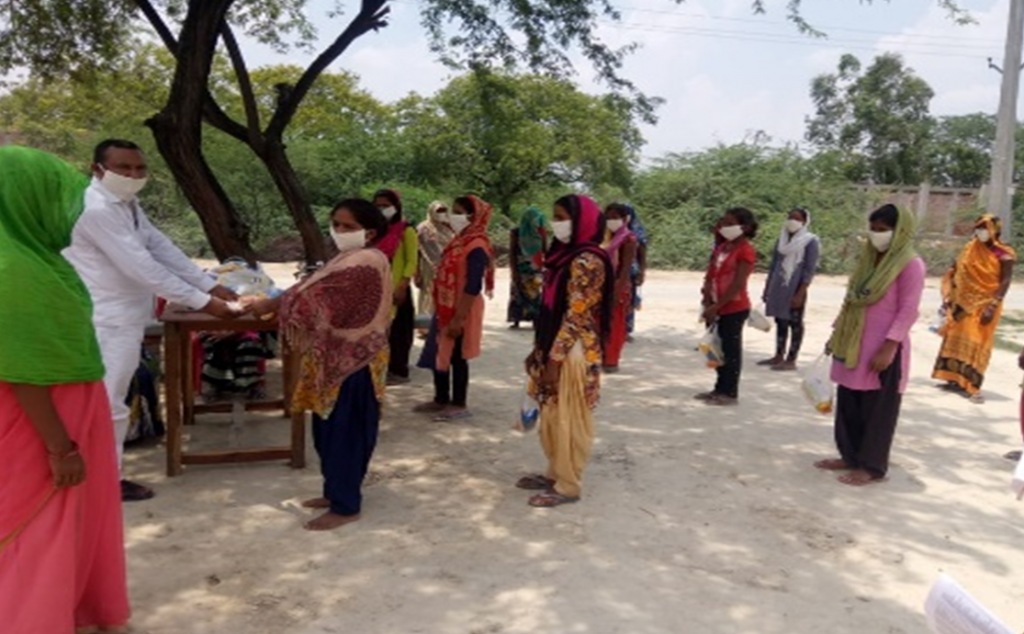
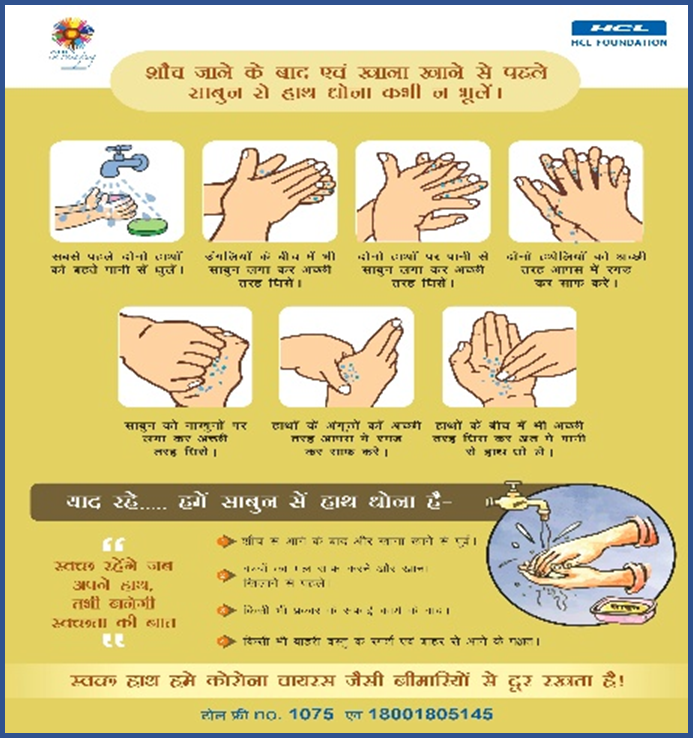
Not only this, the issue of solid waste management was taken care of by the team during the lockdown. Waste is collected from the doorsteps and stored in designated infrastructure created at the village level. Along with regular door-to-door (D2D) collection from 10,500 households, our team also imparted knowledge around the management of wet and animal waste at home. Through this intervention, nearly 600 tonnes of solid waste is managed, and 237 tonnes of compost produced.
Way Forward
We have been aiding local people of the community in identifying the problems, co-creating solutions, and assisting in executing the initiatives, thus lending the dimension of sustainability and ownership to the vision of the development. Initiatives across agriculture, education, healthcare, renewable energy infrastructure, livelihood, and WASH make holistic rural development possible. The programme would continue to support people in the erstwhile three blocks of Hardoi. It is also expanding to eight more blocks of the district.
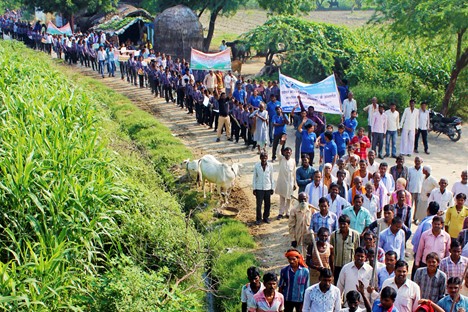
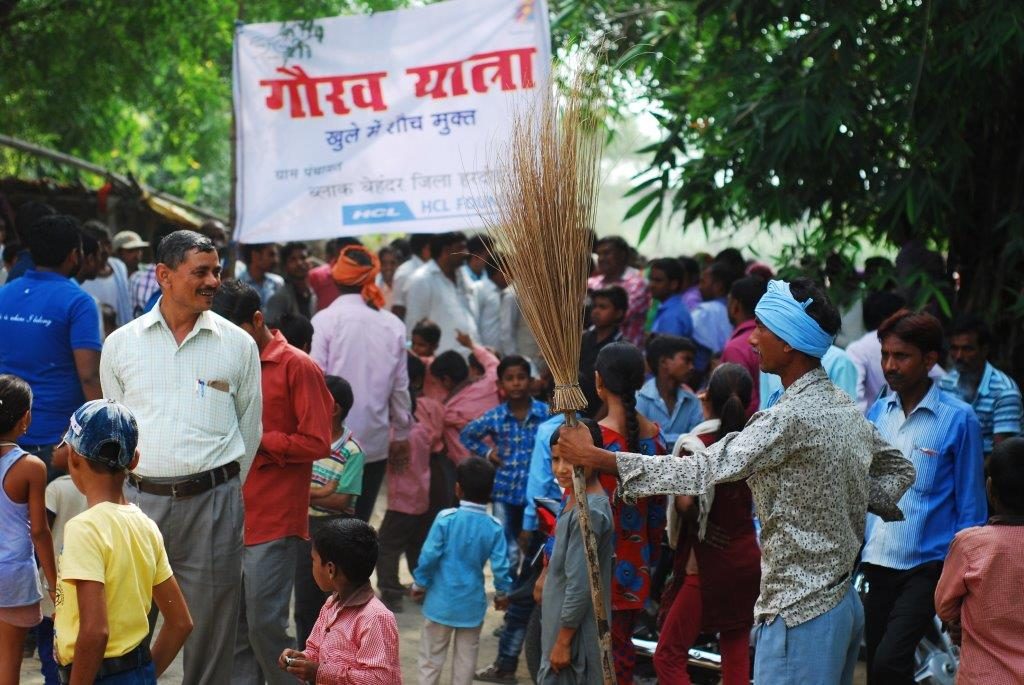
For initiatives related to WASH to succeed at the country level, there is a need for behavioural and attitudinal change along with, of course, support structures such as suitable infrastructure facilities. There is also a need to focus on softer components such as regular training, an inspection of facilities, supervising and assessment of facilities, strengthening village level institutions (VWSCs) and eventually finding reconciliatory methodologies to the problems faced on the ground.
WASH is also a vital factor towards a child’s survival, growth and development, notably to prevent malnutrition and preventable diseases, curtail neonatal mortality and improve education outcomes.
Like Former United Nations (UN) Secretary-General, Kofi Annan rightly said, “We shall not defeat any of the infectious diseases that plague the developing world until we have also won the battle for safe drinking water, sanitation, and basic healthcare.”
Alok Varma is the Project Director of HCL Foundation.
[1] https://www.unicef.org/india/what-we-do/clean-drinking-water
[2] https://pubmed.ncbi.nlm.nih.gov/33532786/

